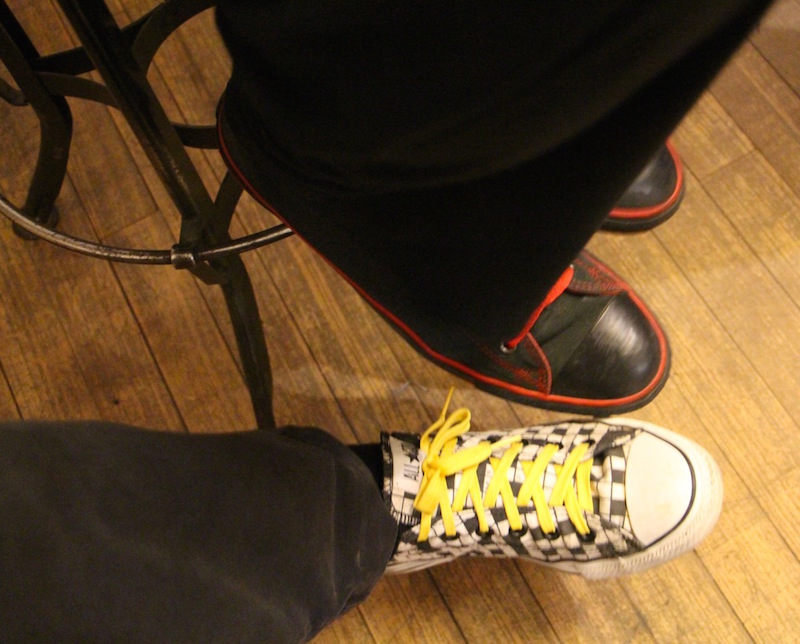WORD CAFE EVENT ARCHIVE
BARBARA UNGAR + STUART BARTOW – 9/24/15
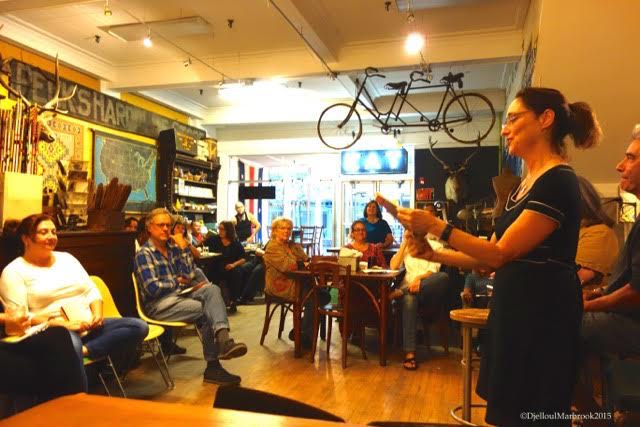
This week’s Word Cafe was a pleasure to host. Poets Barbara Ungar and Stuart Bartow read an exhilarating selection of recent work, sparking a wide-ranging conversation on “Poetic Nature.” The multitalented group of participants included many published poets; Djelloul Marbrook also took photographs.
Stuart led off by reading four poems from his just-published collection, Einstein’s Lawn (Dos Madres): “Einstein’s Compass,” “Ode to Buster Keaton,” “Moon Lust,” and “Better Ghosts,” interleaving his selections with comments about the poems’ themes and origins. A line that caught my ear (and strikes me as pertaining to poets and writers as well as to Einstein): “his lifelong quest to pick the cosmic lock.”
Barbara read four poems from her latest collection Immortal Medusa (The Word Works): “Things Do Not Look as Dismal as They Did,” “Ode to Tardigrades,” “Why I’d Rather Be a Seahorse,” and the titular poem. All four were inspired by natural phenomena–an abecedarian roll call of names of recovering endangered species, a remarkably resilient (and cute) microorganism, the unconventional reproductive lives of seahorses, a jellyfish that can reverse its life cycle–which led to a discussion of how poems begin, and how these two poets pursue and refine these initial impulses into a finished work.
Barbara is a passionate advocate of free-writing, which she likens to “going fishing. I try to shut off my quadruple-Virgo brain and just write till I feel a little tug on the line.” From this initial gush, she says, “something coalesces.” Once it’s all out, it can be chiseled away and shaped, with “a lot of editing.” She paraphrased a quote from Michelangelo: “Every block of stone has a statue inside it and it is the task of the sculptor to discover it.” Barbara keeps a journal next by her bed and starts the day by writing down her dreams, which prompted Stuart to comment, “I don’t keep anything under my bed.”
The center of his process is “no forcing–training yourself to be there when it happens” and letting a poem find its organic shape. “The hell with what you want. Let it be what the poem wants.” He also stressed the importance of reading broadly: “Reading poetry is practicing writing.”
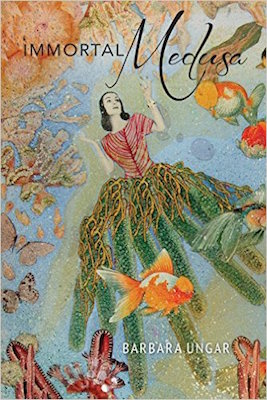
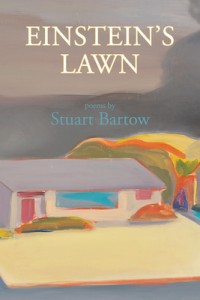
THE EXERCISES:
— Nina: Think of a person you miss. Now think of a bird, the first one that comes into your head. Put them together on the same page, in a poem or prose piece.
— Barbara and Stuart passed out a stack of notecards, each bearing a plant name from a local day-lily nursery, with the directive to use the name as a title or line in a poem. Here are some wonderful lily names from leftover cards, yours for the taking:
Tipsy
Audacity Bond
Casanova
Coleman Hawkins
Starman’s Quest
Yazoo Elise Hinston
Catamount
Wayside Painted Lady
Carolina No
Purple Rabbits
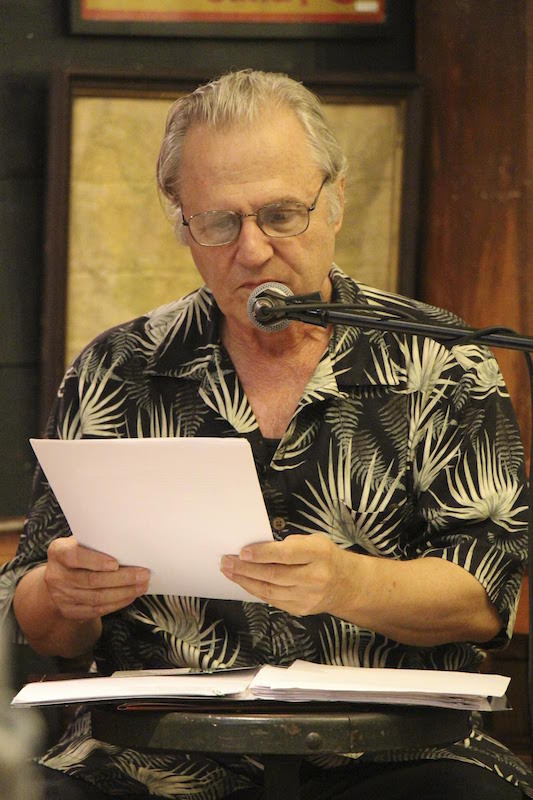 Gerard read a selection of poems, including a series of portraits and elegies, which he called “poems about someone else. And me too; I’m the witness.” The subjects included William S. Burroughs, Stefan Zweig, Gabriele D’Annunzio, and Valerie Eliot (T.S. Eliot’s widow and editor), along with Alphonse and Yolanda diPaolo of Fordham Road (“my upstairs neighbors, my upstairs world.”) One of many lines that caught my ear and stuck: “a fandango of love and leaping.”
Gerard read a selection of poems, including a series of portraits and elegies, which he called “poems about someone else. And me too; I’m the witness.” The subjects included William S. Burroughs, Stefan Zweig, Gabriele D’Annunzio, and Valerie Eliot (T.S. Eliot’s widow and editor), along with Alphonse and Yolanda diPaolo of Fordham Road (“my upstairs neighbors, my upstairs world.”) One of many lines that caught my ear and stuck: “a fandango of love and leaping.”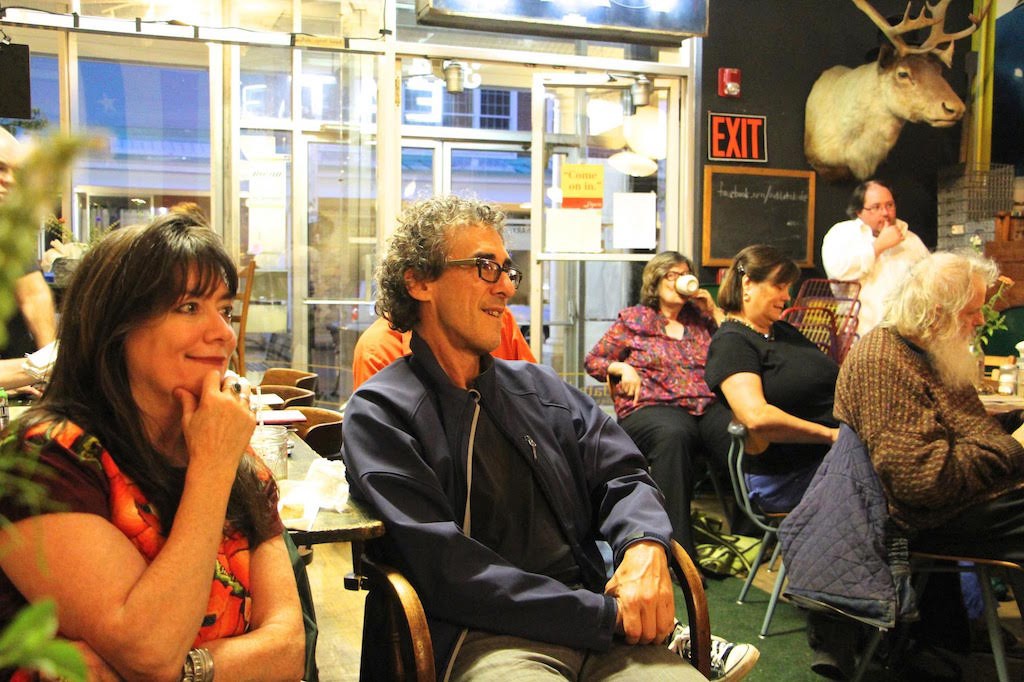
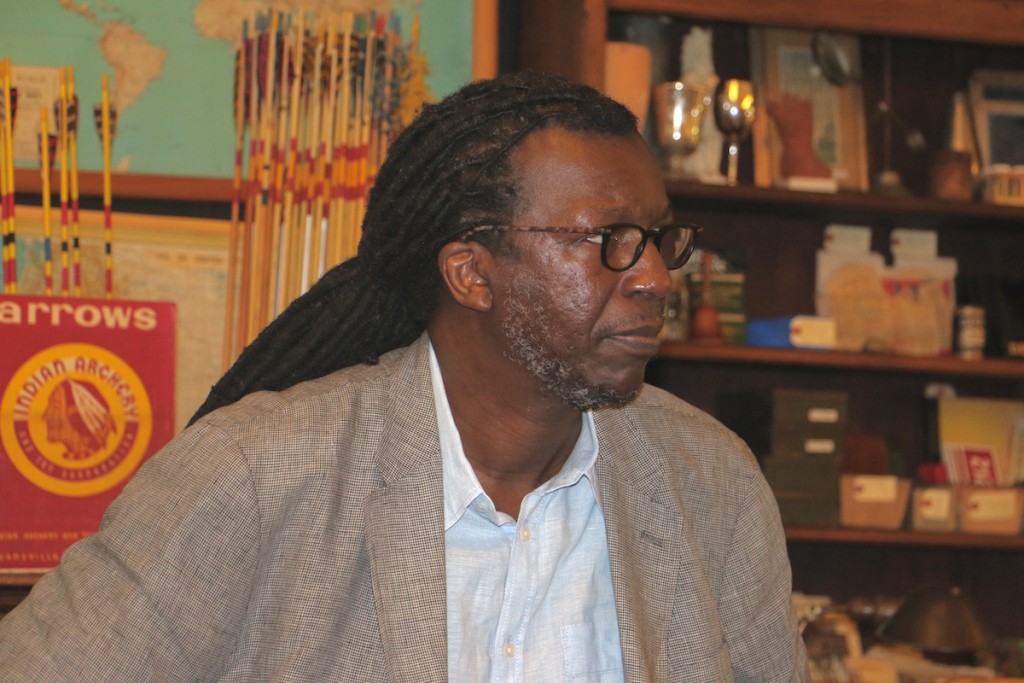 A hero’s welcome to poet-musician
A hero’s welcome to poet-musician 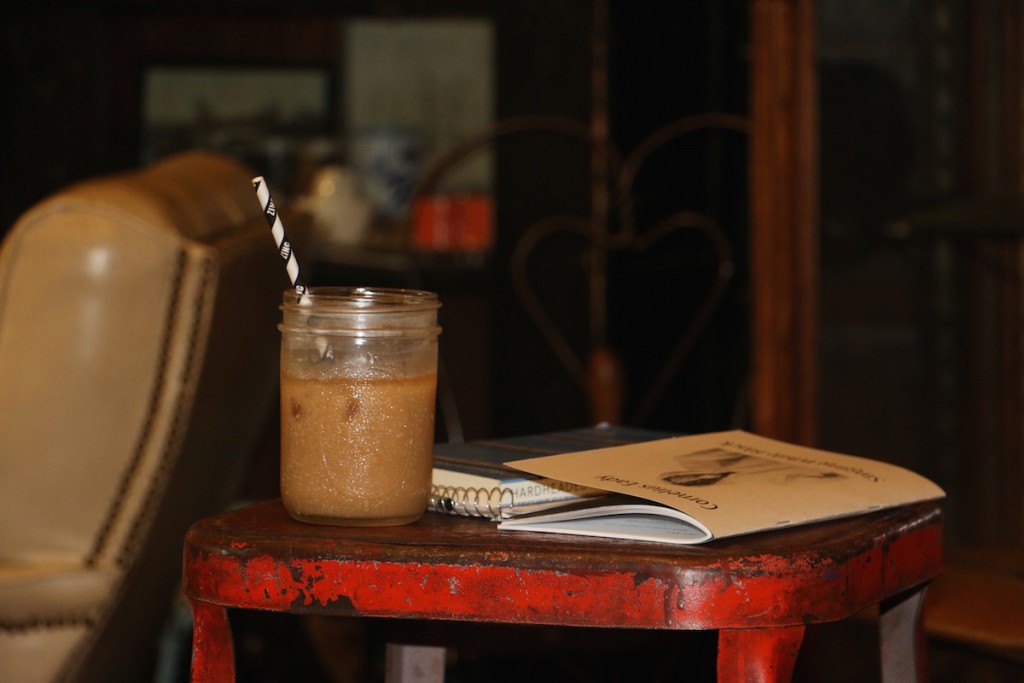
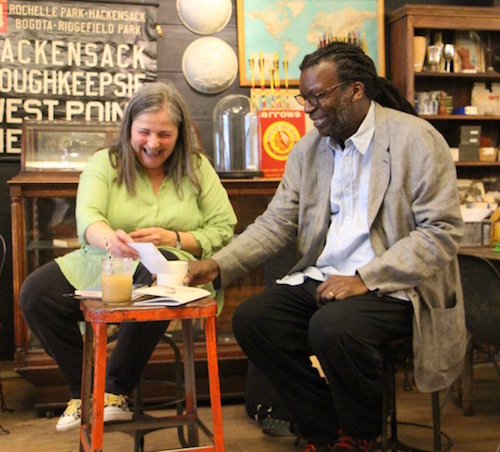 Poetry, said Cornelius, is about language, image, sound, and memory. While both of these prompts involved sharing an intimate moment, the first memory was recent, quiet and contemplative. The second was active, with an inherent intensity. It requires specifics: you’re trying to explain who did what to whom. It’s detailed and particular; you break it down. Also, Cornelius explained, you need to get to a specific “pow!” moment (he clapped his hands). How do you frame that? What frames YOU? How did you become the person we see? It’s about taking a risk, being bold enough to get it down and share it.
Poetry, said Cornelius, is about language, image, sound, and memory. While both of these prompts involved sharing an intimate moment, the first memory was recent, quiet and contemplative. The second was active, with an inherent intensity. It requires specifics: you’re trying to explain who did what to whom. It’s detailed and particular; you break it down. Also, Cornelius explained, you need to get to a specific “pow!” moment (he clapped his hands). How do you frame that? What frames YOU? How did you become the person we see? It’s about taking a risk, being bold enough to get it down and share it.